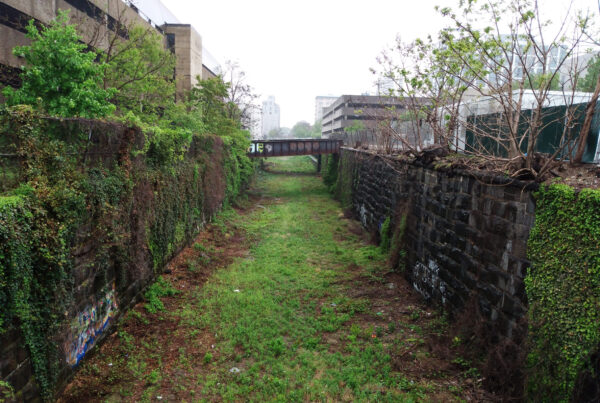What follows is the second part of six contributions (here the first part) by scholars and activists who responded to a call circulated via the ENTITLE network in November 2017, shortly after James O’Connor’s death. Our intent was to solicit personal reflections and memories on how O’Connor had influenced people who encountered his work in different ways and across three different generations.

James O’Connor in 1978 (photo courtesy of the UC-Santa Cruz Digital Collections)
We mourn the sudden loss of a visionary and highly influential thinker, James Richard O’Connor, co-founder with Barbara Laurence of Capitalism Nature Socialism and the Center for Political Ecology. O’Connor was a rigorous, indefatigable intellectual and a committed Polanyian Marxist activist. His thoughts have reached and shaped the minds of thousands of people, including mine, and I trust thousands more will benefit from his insights.
He wrote on a wide range of subjects of great political consequence and of continuing currency and urgency. This includes explaining, in his early works, the relationship between capitalism and the state, as well as clarifying linkages between imperialism and economic processes. The Fiscal Crisis of the State is but one of the better known of his writings that emerged from this line of research. It remains a classical piece, and one that should be read even more widely and translated into more languages than it is.
O’Connor also contributed to great theoretical strides for all of us in CNS through his latter endeavors on the ecological crisis, especially in the late 1980s. This, to me, is the germinal intellectual turning point that oversaw, with the establishment of this journal, the confluence of left-leaning ecological thought with a diversity of leftist anti-capitalist approaches, including variants of Marxism and feminism.
The creative and illuminating outcomes of this confluence and, to a larger extent, interweaving of disparate currents are among the lasting legacies bequeathed to us through O’Connor’s efforts. The development of his Second Contradiction thesis is but one shining example of what came about through such confluence of approaches, and it continues to be an inspiration (or source of debate) for many.
O’Connor’s formidable intellect was complemented by political commitment. This was reflected in, among other actions, his involvement in local environmental struggles. Part of this kind of activity was consumed by writing pamphlets accessible to a wide readership, including for the Students for Democratic Society’s educational campaigns in the 1970s and for various environmental and social policy activist groups in the 1980s.
His political commitment was also represented by his networking and organizing with intellectuals across continents to bring to the attention of North American audiences news, perspectives, and analyses of social and environmental struggles from different parts of the world. He facilitated such international information flow by creating a network of journals from Catalunya/Spain, Italy, and France, based on reciprocity and free manuscript exchange. This is one major way in which this journal came to have international breadth and reach, as well as benefit from the input of thinkers from many countries.
James O’Connor struggled in an inimical intellectual world to keep Marxist perspectives alive while critically reconstructing them to overcome their historical inadequacies, especially with respect to ecology. In all this, he did not mince words, maintained a clear political line, yet kept this journal from falling under any particular tendency, including his own. Farewell, Comrade O’Connor, intrepid navigator of still very rough political waters, and infinite thanks for your intellectual guidance and inheritance.

The cover of a 2011 issue of Capitalism Nature Socialism, the journal James O’Connor contributed to create.
With the death of the American sociologist and economist James O’Connor, the vast number of scholars who sees the environmental question – as well as the exploitation of the human being – as the most obvious and insurmountable limit of capitalism has lost an illustrious and original representative.
In 1991, O’Connor gave life to the international journal CNS – Capitalism Nature Socialism, a very important point of reference not only for academics, but also for more than one generation of activists engaged on the front-line of anti-neoliberalism and environmental justice struggles. Together with a group of intellectuals from different academic disciplines, including Giovanna Ricoveri and Giorgio Nebbia, O’Connor has contributed in recent years to providing categories of analysis and theoretical backing to the claims of the communities that have been “sacrificed” to the (un)sustainable development ideal in many respects.
Nowadays, close to the global threat represented by climate change and the stranglehold of countless ecological emergencies everywhere, the environmental incompatibility of the exploitation-production-disposal model (and the need for a rethinking that brings it back within the physical limits of the planet) are there for all to see. Our gratitude goes to O’Connor for contributing to impose this reflection in unsuspecting times, anticipating the challenge that we still are facing with unchanged strength and confidence.
Emanuele Leonardi
I first met James O’Connor’s thought as a first-year MA student in 2004. I was taking a sociology class focused on the welfare state and I was looking for solid class-based perspectives. A good professor suggested me to give The Fiscal Crisis of the State (1973) a try. I devoured the book and remember enjoying it from cover to cover. What retrospectively stands up as a little epiphany, however, is the “Appendix” to Chapter 6, titled “The Social Expenses of Environmental Pollution”.
The main point was that government money was needed to clean up heavy industries’ ecological mess, namely polluted conditions of production. Although such expenses were not even indirectly productive, they were nothing less than necessary to ensure one of the two main functions of the capitalist state: legitimization (the other being accumulation). More state money for legitimization means less state money for accumulation in the form of (indirectly productive) policies for social investment and social consumption. Hence, with the progressive rise of monopoly capitalism, environmental pollution is a cause of the fiscal crisis of the state.
That was my first encounter with the basic idea on which my research is built: the ecological crisis emerges at the intersection between social and environmental issues. The crisis of nature is not external to the economy, to society or politics. Rather, it is their extreme instance, the threshold whose crossing implies the crumbling of the welfare state’s system of compatibilities. O’Connor will further develop this line of thought in his famous theory of the second contradiction of capitalism (1988), but already in 1973 it is clear that environmental pollution represents a pure cost for corporations, whose attempts to outsource it to the state can only differ the crisis, not overcome it.
From this perspective ecological thought and Marxism can be perfectly overlapped: while the latter focuses and criticizes the internal limits to productive activities (first contradiction), the former deals with its external limits and their violation (second contradiction). This is perfectly in line with André Gorz’s twofold theory of the 1973 oil shock. It was simultaneously a crisis of overproduction – to which capital reacts through a number of counter-tendencies, among which are commodities’ planned obsolescence and the creation of artificial needs which are disentangled from their own use-values – and a crisis of reproduction – due to the ever-increasing costs capital and/or the state have to bear to regenerate the environment (up to that point used as a free landfill) so that it can be polluted again – an operation whose consequence is a higher price of final products. Whether this overlapping between ecological thought and Marxism still holds today or not – or to what extent – is obviously open to debate. That it crucially influenced both theoretical elaborations and political actions is, instead, not to be doubted.
One last word for another methodological tip I still rely on: first come the struggle, then the analysis. What is given to the militant intellectual’s gaze for interpretation is but an outcome of previous social conflicts which require further engagement. To my knowledge, O’Connor never developed this attitude in theoretical terms. However, it seems quite clear something like that was on his mind when he wrote the dedication of his 1973 masterpiece: “To the workers, the unemployed, the poor, the students, and others whose struggles against the state have made this work possible”. (No wonder I fell in love with that book).






Reblogged this on Political Ecology Network.
Hello, I just found out about Mr. O’Connor’s death.
I was in a play he wrote titled, Death of a capitalist pig.
We did a cold reading of it in a coffee house in New York back in 2011.
I have some emails and the script still.
Does anyone have any information about his death?
Thank you.
Shanti Suttin